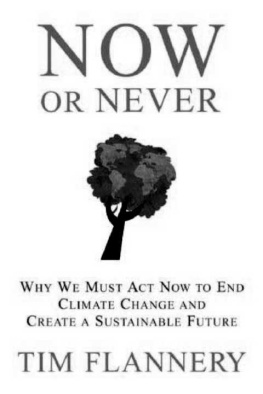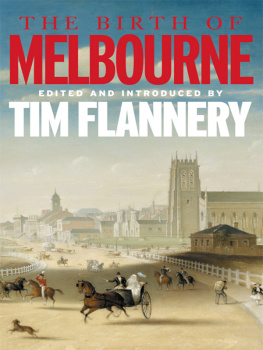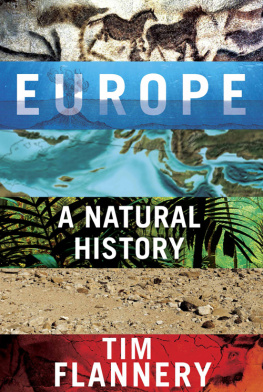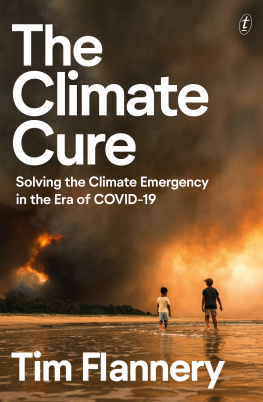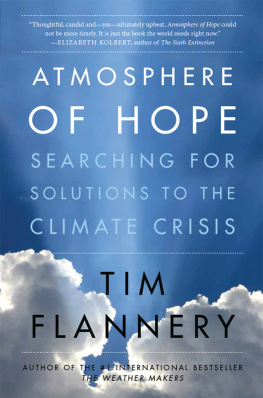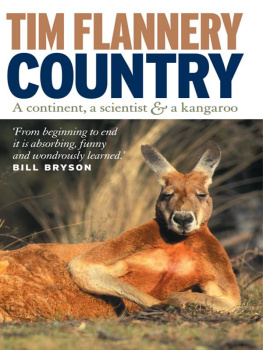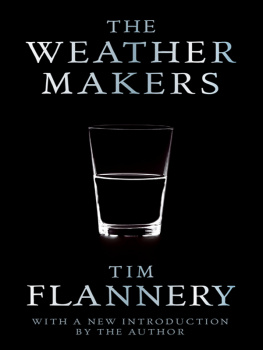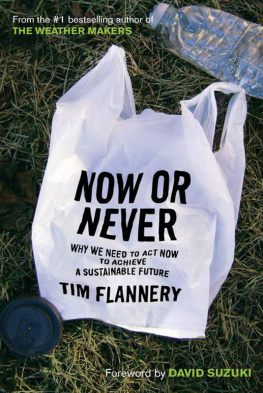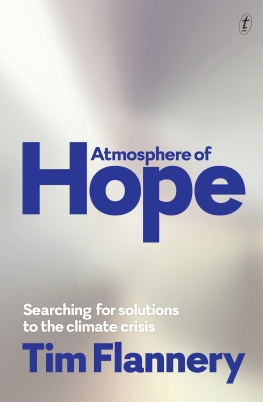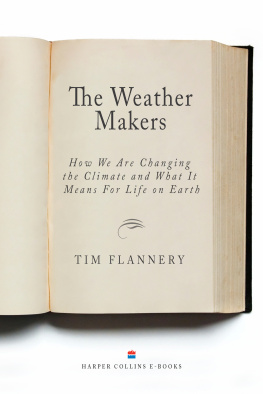Tim Flannery - Now or Never: Why We Must Act Now to End Climate Change and Create a Sustainable Future
Here you can read online Tim Flannery - Now or Never: Why We Must Act Now to End Climate Change and Create a Sustainable Future full text of the book (entire story) in english for free. Download pdf and epub, get meaning, cover and reviews about this ebook. genre: Romance novel. Description of the work, (preface) as well as reviews are available. Best literature library LitArk.com created for fans of good reading and offers a wide selection of genres:
Romance novel
Science fiction
Adventure
Detective
Science
History
Home and family
Prose
Art
Politics
Computer
Non-fiction
Religion
Business
Children
Humor
Choose a favorite category and find really read worthwhile books. Enjoy immersion in the world of imagination, feel the emotions of the characters or learn something new for yourself, make an fascinating discovery.
- Book:Now or Never: Why We Must Act Now to End Climate Change and Create a Sustainable Future
- Author:
- Genre:
- Rating:3 / 5
- Favourites:Add to favourites
- Your mark:
- 60
- 1
- 2
- 3
- 4
- 5
Now or Never: Why We Must Act Now to End Climate Change and Create a Sustainable Future: summary, description and annotation
We offer to read an annotation, description, summary or preface (depends on what the author of the book "Now or Never: Why We Must Act Now to End Climate Change and Create a Sustainable Future" wrote himself). If you haven't found the necessary information about the book — write in the comments, we will try to find it.
Now or Never: Why We Must Act Now to End Climate Change and Create a Sustainable Future — read online for free the complete book (whole text) full work
Below is the text of the book, divided by pages. System saving the place of the last page read, allows you to conveniently read the book "Now or Never: Why We Must Act Now to End Climate Change and Create a Sustainable Future" online for free, without having to search again every time where you left off. Put a bookmark, and you can go to the page where you finished reading at any time.
Font size:
Interval:
Bookmark:





Other books by Tim Flannery
Chasing Kangaroos: A Continent, a Scientist, and a Search for the World's Most Extraordinary Creature
The Weather Makers: How Man Is Changing the Climate and What It Means for Life on Earth
Mammals of New Guinea
Tree Kangaroos: A Curious Natural History with R. Martin, P. Schouten, and A. Szalay
Possums of the World: A Monograph of the Phalangeroidea with P. Schouten
Mammals of the South West Pacific and Moluccan Islands
Watkin Tench, 1788 (ed.)
The Life and Adventures of John Nicol, Mariner (ed.)
Throwim Way Leg
The Birth of Sydney
Terra Australis: Matthew Flinders' Great Adventures in the Circumnavigation of Australia (ed.)
The Eternal Frontier
The Explorers
A Gap in Nature with P. Schouten
Astonishing Animals with P. Schouten




TIM FLANNERY


VII
NOW OR NEVER
RESPONSES
REPLY

by David Suzuki
Human beings are an infant species, appearing in the last o.ooi percent of the time that life has existed on Earth. For most of the i5o,ooo years of our species' existence, we were hunter-gatherers, carrying all our possessions in a constant search for food and materials. Even after the agricultural revolution ten millennia ago, we lived within limited confines in the company of a few dozen people. We have been local, tribal animals for almost all our time on Earth.
But suddenly we have become a geological force, altering the physical, chemical, and biological makeup of the planet as no other species has ever done. We have embraced the benefits of our newly acquired powers with little regard for the consequences within the biosphere. But now we have to ask, "What is the collective impact of all 6.7 billion human beings?"and it is very difficult to assess. Even when we do consider how we are all affecting our surroundings, we find there are no mechanisms to respond as a single species for our own benefit.
It has long been my contention that at the time of our emergence as a species on the plains of Africa, we gave no hint of our explosive development into a dominant force in only 150 millennia. That's because our evolutionary advantage was hidden in our skulls. The human brain conferred an enormous memory, insatiable curiosity, and impressive creativity that more than compensated for our lack of physical and sensory capacities. Accumulating knowledge through experience and imagination, we invented the notion of a future; and in so doing, we found we could influence that future. Using our knowledge and memory, we could look ahead, anticipate dangers and opportunities, and thus deliberately choose to take actions that avoided the dangers and exploited the opportunities. Foresight was our great advantage and was a key part of our enormous success as we spread across the planet.
Today, we are the most numerous mammal on Earth, and our huge ecological footprint (that is, the amount of land and water needed to meet our de mands) has been amplified beyond that of any other species by our technological muscle power, voracious appetite, and global economy. It has only been fortyseven years since Rachel Carson told of the costs of our technological prowess in her influential book Silent Spring. Despite her prescient warnings, pesticides are used today in far greater amounts and many are far more toxic than those used in 1962.
Our capacity to look ahead has been greatly amplified today, with scientists, supercomputers, and telecommunications; and ever since Silent Spring, the warnings of scientists have become more urgent. But now we are turning our backs on the very way that so successfully got tis to our current position of dominance.
In 1988, the environment was the number one concern of people around the world. That year, Prime Minister Margaret Thatcher of the United Kingdom declared, "I'm a greenie," and George H. W. Bush promised, if elected, to be "an environmental president." In 1988, Brian Mulroney was reelected prime minister in Canada and, to show he cared about the environment, he appointed his brightest star, Lucien Bouchard, as minister of the environment. I interviewed Bouchard three months later and asked what he felt was the most urgent environmental issue for Canadians. His instant response was, "Global warming." When I asked how serious it was, he replied, "It threatens the survival of our species. We have to act now.
That year, 300 scientists met in Toronto to discuss the atmosphere. They were convinced there was evidence that global warming was occurring and that people were causing it. In a press release, they declared that global warming represented a threat to human survival second only to nuclear war, and they called for a 20 percent reduction in greenhouse gas emissions below 1988 levels in fifteen years. Scientists had spoken, the public was concerned, and politicians had gotten the message. Had we acted accordingly, we would be far beyond the Kyoto target and well on our way to the deep reductions we now know we have to make.
But we didn't respond by taking on the challenge. Politicians didn't have the stomach to take the criticism for spending big bucks to reduce greenhouse gas emissions when they wouldn't even be around to take credit for it fifteen years later. Many environmentalists, including me, felt it was a "slow-motion catastro phe" and there was time to focus on more urgent issues like clear-cut logging. But most egregiously, corporations began to spend millions on a campaign to confuse the public, calling climate change "junk science," supporting articles and Web sites to dispute the evidence, and funding a few "skeptics" to spread disinformation. And it worked. (See Climate Cover-Up by James Hoggan.)
Tim Flannery's The Weather Makers was a wakeup call. A best-selling book, it made the impact of climate change real and personal and, like Al Gore's An Inconvenient Truth, moved a wide audience to take the issue seriously. But as countries moved with glacial reluctance to make big reductions in their greenhouse gas emissions, glaciers themselves were melting with unprecedented speed. The most authoritative voice on climate, the Intergovernmental Panel on Climate Change, has issued updates that have become more and more urgent, even as scientists announce unanticipated rapidity of change.
Font size:
Interval:
Bookmark:
Similar books «Now or Never: Why We Must Act Now to End Climate Change and Create a Sustainable Future»
Look at similar books to Now or Never: Why We Must Act Now to End Climate Change and Create a Sustainable Future. We have selected literature similar in name and meaning in the hope of providing readers with more options to find new, interesting, not yet read works.
Discussion, reviews of the book Now or Never: Why We Must Act Now to End Climate Change and Create a Sustainable Future and just readers' own opinions. Leave your comments, write what you think about the work, its meaning or the main characters. Specify what exactly you liked and what you didn't like, and why you think so.

